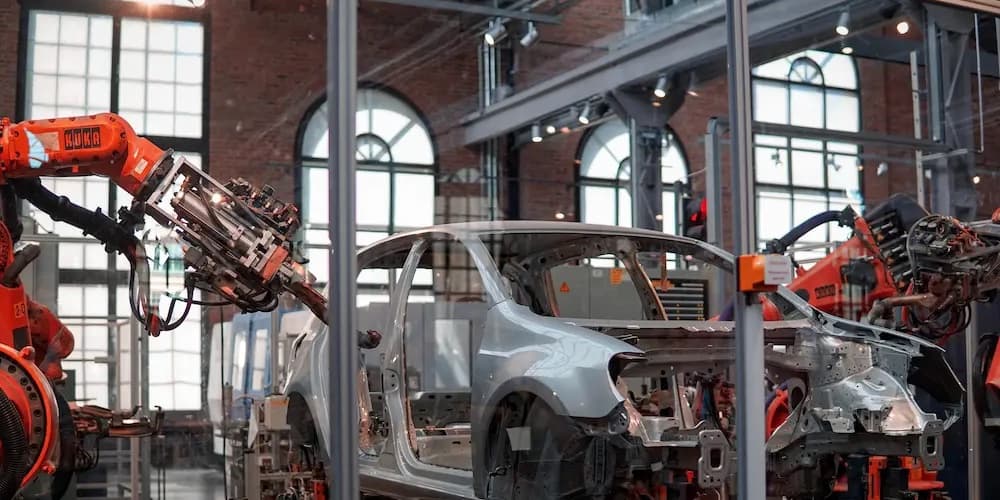Artificial intelligence (AI) is sometimes confused with automation, and the terms are often used interchangeably.
When talking to vendors, it's critical to decipher exactly what's being offered so you know it will truly address your needs.
Today, let's demystify these terms and discover what happens when AI and automation are combined.
What is automation?
Automation is when we have a machine do simple, repeatable activities that follow instructions or workflows set by individuals.
Automation tasks are highly repetitive, predictable tasks. Think of a machine in a factory that manufactures the same part in the same way over and over again.
Automation requires manual configuration and human supervision to effectively execute. This means humans must anticipate every possible action, so the machine is programmed to behave the right way every time.
This is why constant vigilance is required. If the environment changes, marketers must manually step in and make the necessary adjustments.
Is AI the same as automation?
AI is not the same as automation.
Automation is a machine executing a series of instructions exclusively set by humans. If an action isn't explicitly described in the instructions, the machine can't do it.
With AI, however, the machine can take broad rules outlined by humans, and determine its own pathways to success.
Not to mention, it can learn what works and what doesn't, so its performance improves over time on its own.
Instead, AI refers to how computer systems can use huge amounts of data to imitate human intelligence and reasoning, allowing the system to learn, predict and recommend what to do next.
Capabilities enabled by AI include natural language processing (NLP), computer vision, and facial recognition.
Machine learning and deep learning (in the form of neural networks) power the most sophisticated AI available today.
AI can use various algorithms that act in concert to find signal in the noise of data and find paths to solutions that no human would be capable of.
Most AI that uses machine learning today works in an assistive fashion, providing next best action recommendations to humans who then decide whether to trust them or not and then manually make adjustments.
What is AI automation?
Automation can be used in tandem with AI such as machine learning and deep learning to produce even better results in a process we might call "AI automation."
AI automation is powerful because it allows us to reap both the business process benefits of automation—increased speed, efficiency, time-savings, and ability to scale—with the insights, flexibility, and processing power of AI technology.
Businesses that use AI automation are able to augment their capabilities, while off-loading repetitive tasks to the machine.
This is different from pure automation in that the AI can start, stop, or even alter what it is doing based on the environment in which it operates.
What's more, because the best AI systems allow marketers to set guardrails, there's no chance of unforeseen events taking outcomes too far astray.
For businesses, this means faster, more personalized execution and processes, greater use and accuracy in data, and improvements in overall customer experience.
Businesses shift from fussing over repetitive tasks to focusing on higher value-added, human-centric contributions like, "How do we evolve our value proposition to drive more business?"
Because of these clear benefits, Forrester predicts that by 2020, 25% of Fortune 500 companies will report hundreds of examples of AI automation use cases.
Benefits and examples of AI automation
AI automation not only surfaces insights for businesses, but actually turn insights into action.
As one example in marketing, an AI application like Albert can synthesize historical digital campaign data across channels, craft strategies for execution, and explore different combinations of messages, creatives, and frequency across audiences.
Evolving relentlessly over time, the intelligent machine's autonomous capabilities allow it to actually shift budgets, adjust bids, audiences and optimize campaigns 24x7 in relentless pursuit of KPIs that a marketer has set.
This is especially important as customers continue to demand more from brands; Salesforce's Fifth Annual State of Marketing Report revealed that 53% of customers now expect personalized offers, and 62% expect businesses to anticipate their needs.
AI automation is becoming the only way to deliver personalized touch points for an optimal customer experience across paid digital channels using machine learning.
To learn more about how Albert plans, executes and optimizes paid digital marketing campaigns, contact Albert.
Or Shani
Or Shani is CEO and founder of Albert, the world’s first and only autonomous digital marketer. Or’s work is reshaping the ways people and machines collaborate, with a focus on how AI empowers marketers.



